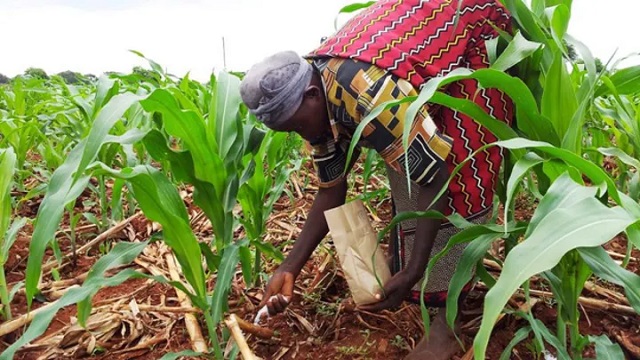
Kampala, Uganda | THE INDEPENDENT | The number of farmers using inorganic fertilizers in Uganda is still low due to the wrong perception and limited access. Dr. Henry Nakalet Opolot, the Commissioner in charge of the Agriculture Cluster Development Program in the Ministry of Agriculture, Animal Industry and Fisheries says that there is still a negative attitude towards inorganic fertilizers by farmers who associate them with diseases like cancer.
He says this is something they have attempted to counter through sensitization. He adds that the availability of inorganic fertilizers is still low and that several farmers lack the capacity to purchase them even at subsidized prices. Dr. Opolot says that currently, the uptake of fertilizers in the country is less than 5% despite agriculture remaining the biggest employer with over 80% of the population depending on it for survival.
According to the 2022 Uganda Bureau of Statics annual agricultural survey, about 7 million households in Uganda cultivate land or rear livestock. Dr. Opolot is concerned that the low uptake of fertilizers could exacerbate the food insecurity situation in the country at a time when other factors like climate change and the effects of COVID-19 have also affected the environment and the economy in which the farmers operate.
Data from a 2018 study by Knoema, a business data platform shows that Uganda uses 3.3kgs of fertilizer per hectare. At the same time, fertilizer consumption for Hong Kong was 3,573.9kg per hectare. Other top consumers were Malaysia, Bahrain, New Zealand, and Ireland. He urges farmers to embrace the use of fertilizers because with continuous cultivation of the land, it wears out hence requiring a boost to be able to produce more yield. Dr. Henry Nakalet Opolot was speaking at the launch of Sustain Africa Uganda initiative by the African Fertilizer and Agribusiness Partnership-AFAP.
*****
URN
 The Independent Uganda: You get the Truth we Pay the Price
The Independent Uganda: You get the Truth we Pay the Price





